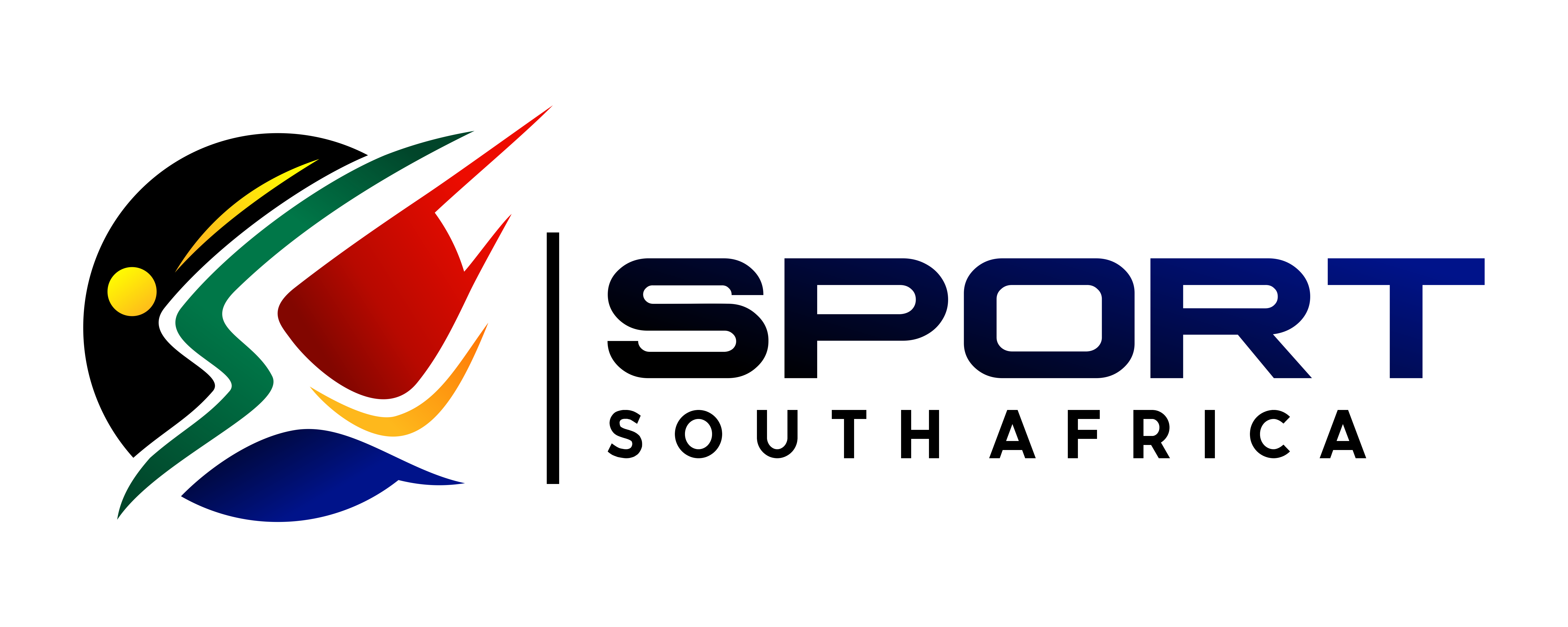In a sport dominated by tradition, precision, and mental fortitude, Harry Saner has carved out a place in history for himself and South Africa. At just 23 years old, the Johannesburg-born fencer secured his spot at the 2024 Paris Olympics, becoming the first South African fencer to qualify since 2008. His journey is one of perseverance, passion, and a relentless pursuit of excellence, marked by countless hours of training, international competition, and academic rigor as he balances his Olympic dreams with a Mechanical Engineering degree at the University of the Witwatersrand (Wits).
A Knight's Beginning: From Childhood Dreams to Olympic Aspirations
Saner’s love for fencing was born from a childhood fascination with knights, swords, and the grand tales of medieval battles. “I first got into fencing because I wanted to fulfil my childhood dreams of becoming a knight in shining armour,” he recalls. Watching the 2008 Olympics, where South Africa last competed, cemented his desire to pursue the sport. “I saw it on TV and thought, ‘That’s it. That’s what I want to do.’”
Inspired by films like Zorro and Star Wars, and driven by an insatiable curiosity about swordsmanship, Saner pestered his parents until they found a fencing club close to home. “They eventually caved, and the rest is history,” he laughs.
By the age of 10, Saner was brandishing his first foil, unaware that the journey ahead would lead him to international competitions and ultimately, the Olympic stage. “Once I made it to the Junior World Championships, I realized the gap between us and the rest of the world wasn’t as wide as I thought. From there, I wanted to train harder and be better.”
The road to Olympic qualification was anything but smooth. After narrowly missing out on a spot for Tokyo 2020, Saner switched focus to épée, winning the Men’s Individual event at the African qualifiers in Algiers. “Winning all the South African National competitions consecutively leading up to the zonal event was crucial,” he explains. “But the real test was the final in Algiers. I had to win – it was the last chance.”
In a nail-biting semi-final, Saner fought back from a 14-13 deficit to secure a 15-14 victory. “That was the most emotion I’ve ever felt in a day. I remember sitting in the sun, calming my mind before the final. When I won, it felt like everything I’d worked for had paid off,” he says.
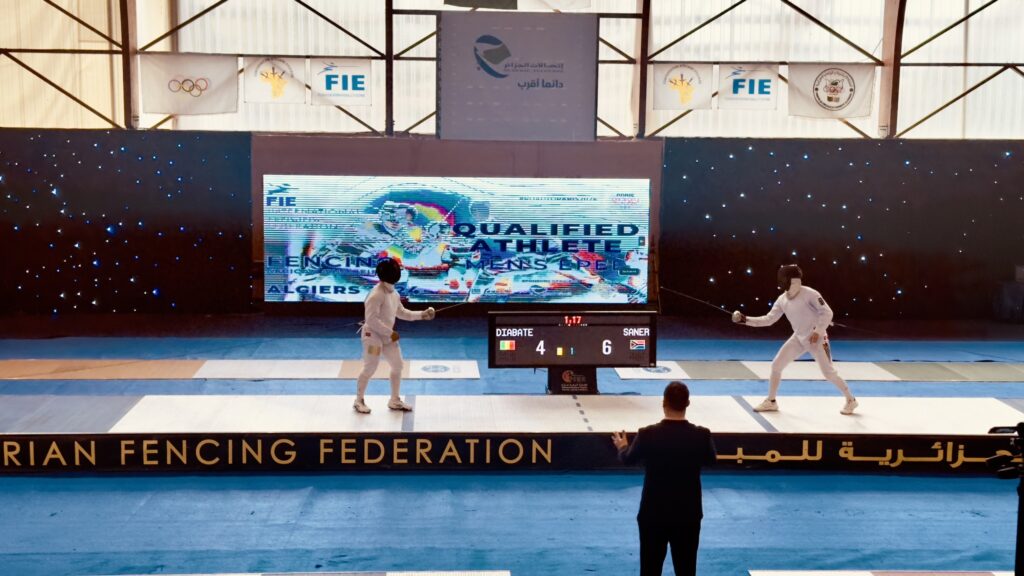
Saner vividly recalls the rollercoaster of emotions leading up to that decisive day. “Before Algiers, every competition felt like a mountain to climb. I’d already gone through sickness, injury, and the sting of falling short for Tokyo. Each setback felt heavier, but it also made me hungrier,” he reflects. “In the semi-final, I was leading by five points, and somehow, I let it slip. The thought of losing the match – and the Olympic spot – flashed before me. I had to fight back for every point. When I finally won 15-14, the relief was overwhelming. I sat for hours before the final, letting the weight of it sink in. That sunlight I soaked in felt like the calm before the storm. When the finals came, I stepped onto that strip fully focused. I knew this was the moment that mattered most, and I wasn’t going to let it slip away.”
His victory in the final, a hard-fought 15-13, was the culmination of years of dedication. “I wasn’t just fencing for a medal that day. I was fencing for every competition I’d failed, every training session I’d pushed through, and every person who believed in me.”
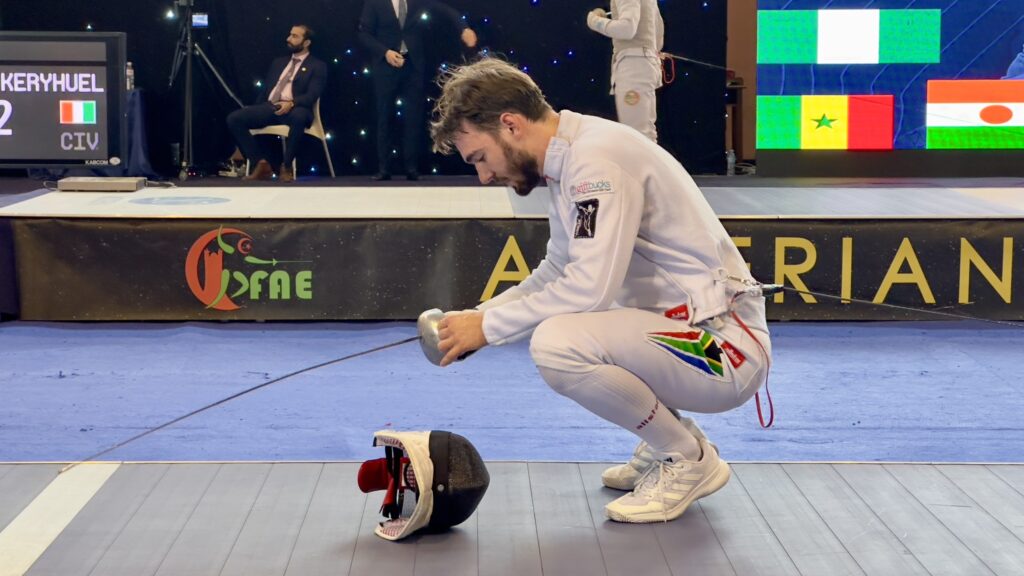
Olympic Glory: The Grand Palais Experience
Walking into the Olympic arena for the first time was a moment Saner will never forget. “It was better and more magnificent than anything I had visualized,” he says, his eyes lighting up. Spotting his family in the crowd, draped in South African flags, brought a sense of pride and calm. “I saluted them from the strip, took in the grandeur of the Grand Palais, and soaked in every second.”
The competition itself was not without its share of complications. “There was an unexpected mix-up with the markings on my suit,” Saner explains. Traditionally, his fencing attire bore the South African flag on the legs – a subtle yet powerful symbol of national pride. However, just before his first match, officials informed him that the design did not comply with competition regulations.
“It was a communication error, and suddenly we had to make last-minute adjustments. Our plan was to add a Team South Africa badge alongside the flags.”
Despite the initial frustration, Saner and his team found a compromise.
“I stepped onto the strip with the Team SA badge on top of the South African flags, but by that point, I wasn’t fencing for the design on my suit. I was fencing for what was inside me – and for my country.”
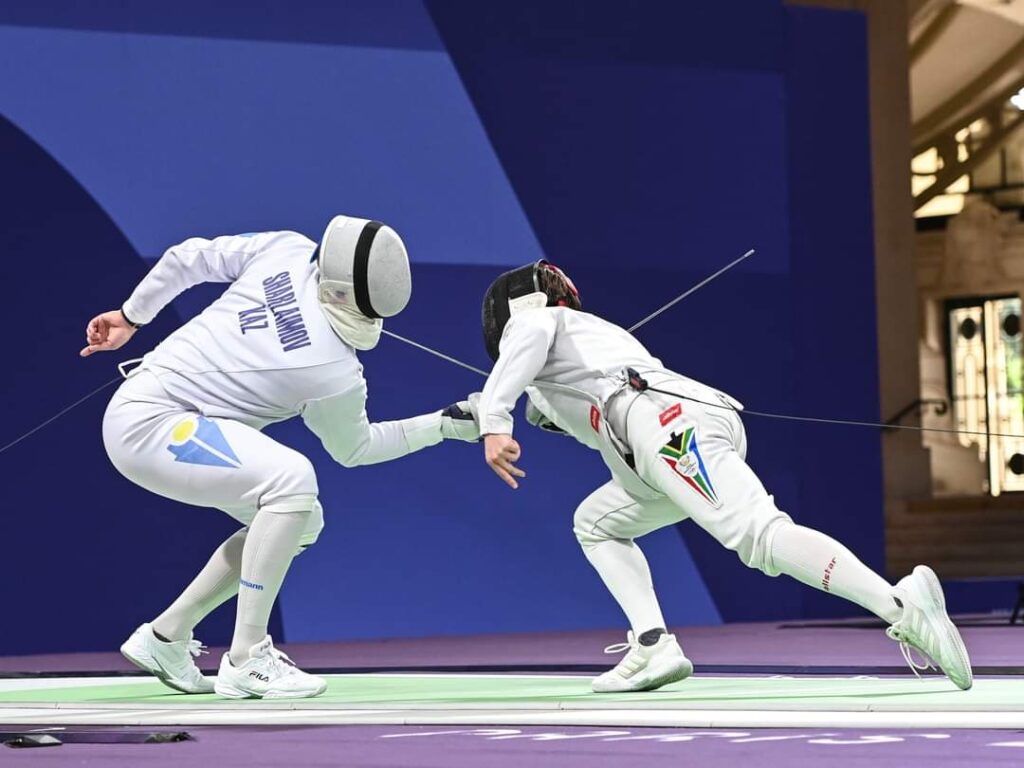
The intensity of the Olympic stage presented its own hurdles. “I felt I was just a fraction out of distance, and my timing didn’t feel as crisp as it usually does,” he admits. “I knew I was making the right calls, but there were moments when I simply couldn’t land the touch.” The match, while fiercely contested, ultimately slipped from his grasp. “It was lethal,” Saner says, not in bitterness but in acknowledgment of the razor-thin margins that define elite-level fencing.
Still, there were silver linings. “I handled the crowd and the atmosphere far better than I expected. The Olympic arena can be overwhelming, but I managed to stay composed and close to my usual standard of performance.” He pauses for a moment, reflecting. “There are always things to refine – sharper timing, better distance control – but knowing I could stand on that strip and hold my own at the Olympics? That alone is a victory.”
Despite the intensity, Saner describes the Olympics as a “movie reel of unforgettable moments.” From sailing on the Seine to witnessing the Olympic rings atop the Eiffel Tower, he embraced every aspect of the Games. “It felt surreal, like I was living inside a dream I’d had for years.”
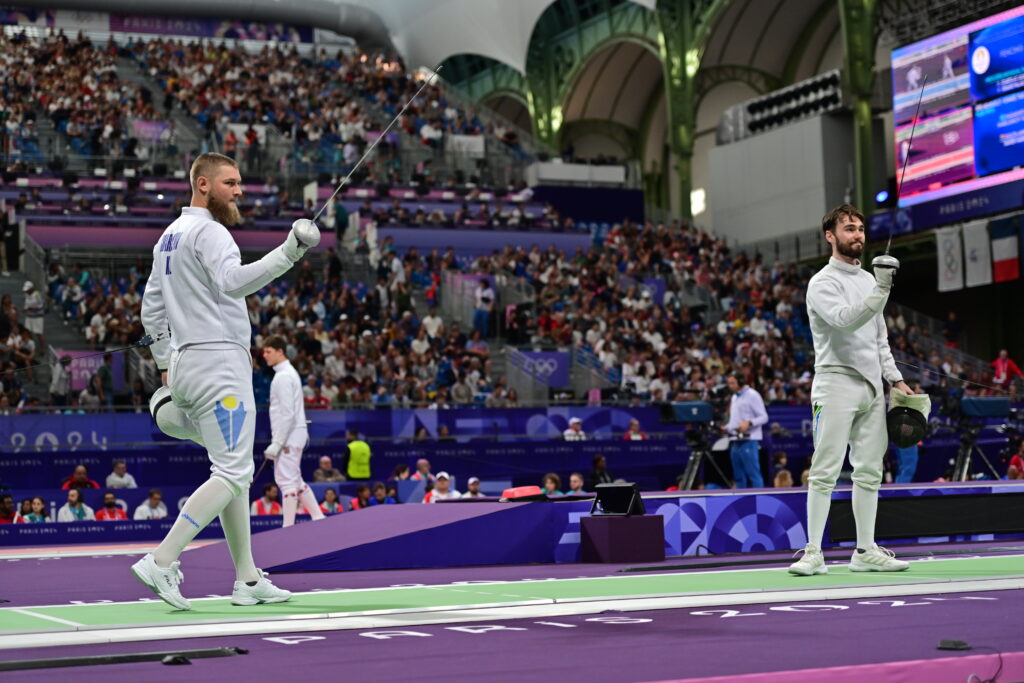
Training Like a Champion: Mental and Physical Preparation
Saner’s training regimen is as rigorous as his academic schedule. “A typical week includes two to four fencing sessions, strength and conditioning, running, and stretching,” he shares. Cycles of training focus on building strength, improving speed, and honing technique.
But mental preparation plays an equally critical role. “Trusting yourself is key,” Saner advises. “Knowing you’ve done everything you can to prepare lets you focus on the moment. At the Olympics, it’s about believing you deserve to be there.”
Nutrition, sleep, and recovery are essential to his performance. “It’s like expecting a car to perform without wheels – without proper fuel, the body can’t sustain high-intensity training.” By focusing on balanced nutrition and adequate rest, he minimizes the risk of injury and improves overall consistency in training. “When you’re well-rested and eating right, you can train harder and more often.” This steady foundation supports both physical performance and mental focus, ensuring he’s prepared when it matters most.
The Art of Fencing: Technique, Strategy, and Customization
Fencing is often likened to a physical game of chess, requiring constant analysis and adaptability. “I’m always assessing my opponent, whether it’s sizing up their style during the bout or adjusting based on prior preparation,” Saner explains. “For major competitions like the Olympics, I prepare specific strategies to counter their usual patterns, but adaptability is key. Plans can shift quickly, and reading their movements in real-time often dictates the next step.” This balance of preparation and flexibility allows him to stay composed and responsive, even when the unexpected happens.
To the question if customization plays an important role in optimizing performance. “I bend the tang of my épée to match my grip and adjust the angle slightly so the tip points more naturally at my opponent,” he explains. “It’s a subtle adjustment, but it improves comfort and precision during a bout.” In addition to modifying the tang, he selects blades, guards, grips, and tips from preferred suppliers, ensuring consistency in feel and performance. “Most equipment is similar across brands, but I try to stick with one as much as possible to maintain familiarity.” His approach to gear extends to his uniform, favouring a classic black mask with a white jacket, pants, and socks. “I keep the look clean and simple – there’s no need for too much customization beyond what feels right in my hand.”
Overcoming Setbacks and Looking Ahead
Saner’s journey has been marked by resilience and perseverance in the face of considerable obstacles. Falling ill during crucial competitions, including the African Championships where the team placed third, posed significant challenges to Olympic qualification. Despite his illness, Saner delivered a standout performance, securing the bronze and emerging as the team’s top fencer that day. “Mental fortitude sets me apart,” he reflects. “I can stay calm under pressure and push through tough moments.”
Beyond health setbacks, Saner also navigated internal political friction within the fencing federation, which added another layer of complexity to the qualification process. Determined to stay focused, he chose to channel his energy into performing at his peak for key qualification events. Winning three consecutive national competitions, despite the difficulties faced during each one, was a testament to his unwavering commitment and ability to thrive in high-stakes environments.
His next goal? “LA 2028,” he says without hesitation. “I plan to work harder and smarter to make sure I get there.” Beyond the Olympics, Saner hopes to earn his master’s degree in engineering while contributing to the growth of fencing in South Africa – and, with some luck and funding, help secure a spot for a full South African fencing team at the next Olympics.
“I also aim to compete in this year’s Universiade and, depending on funding, attend the World Championships and as many international competitions and training camps as possible.”
Beyond the Arena: Life Outside Fencing
While fencing occupies much of his time, Saner’s interests extend far beyond the piste. Recently completing his mechanical engineering degree at Wits University, he finds joy in problem-solving, tinkering, and creating. “I’ve always loved making things – from playing with Lego as a kid to working on engineering projects now. It’s a passion that complements the mental challenges of fencing,” he shares.
Video games are another unexpected but valuable pastime. “They sharpen my reflexes and problem-solving skills, which surprisingly translate well into fencing,” he says with a smile. Reading and writing offer him a different kind of escape – a way to process and reflect. “It’s almost like a mental reset. Putting my thoughts on paper helps me gain clarity.”
The Backbone of Success: His Support System and Sponsors
Saner’s journey hasn’t been a solo endeavour. His biggest champions are the ones closest to him. “My parents have been the most influential figures in my life, not just in fencing but in everything I do. They’ve been there every step of the way, keeping me grounded and focused,” he reflects.
Alongside family, his long-time coach Dr. Gennady Tyshler has been instrumental in shaping his fencing career. “Dr. Tyshler has guided me since day one. His expertise and belief in me have been constant throughout my journey,” Saner says. His sparring partner, Pasha – both a close friend and competitor – is another crucial figure. “Pasha pushes me to be better, both in sport and in life. He challenges me, and that’s invaluable.”
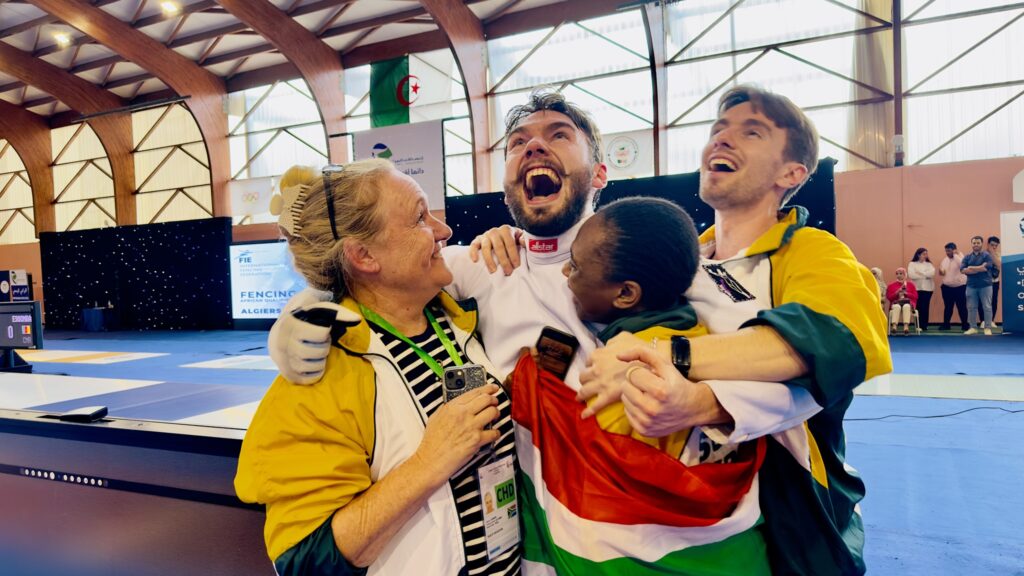
Saner also credits his friends, girlfriend, and brother for their unwavering support. “I wouldn’t have made it to the Olympics without them. Their belief in me fuels my drive. My girlfriend’s patience and encouragement mean the world to me, and my friends keep me grounded and motivated. I know I’m incredibly lucky to have them all in my corner.”
My main sponsors have been my parents’ businesses, Giftbucks Creative Incentives and Leading Incentives, and I am ever grateful for their unrelenting support. Finding sponsors hasn’t always been easy. “A lot about getting sponsorships comes down to reach on social media or selling products through a platform,” Saner explains. “That’s quite difficult since fencing and spending time on your craft is quite different from showing your craft to the world.”
Saner remains optimistic and driven, aiming to secure more sponsors to aid him along his fencing journey. “I hope to continue seeking sponsors, not just for myself but ideally for an entire South African fencing team. A fully sponsored national team would be a dream come true.”
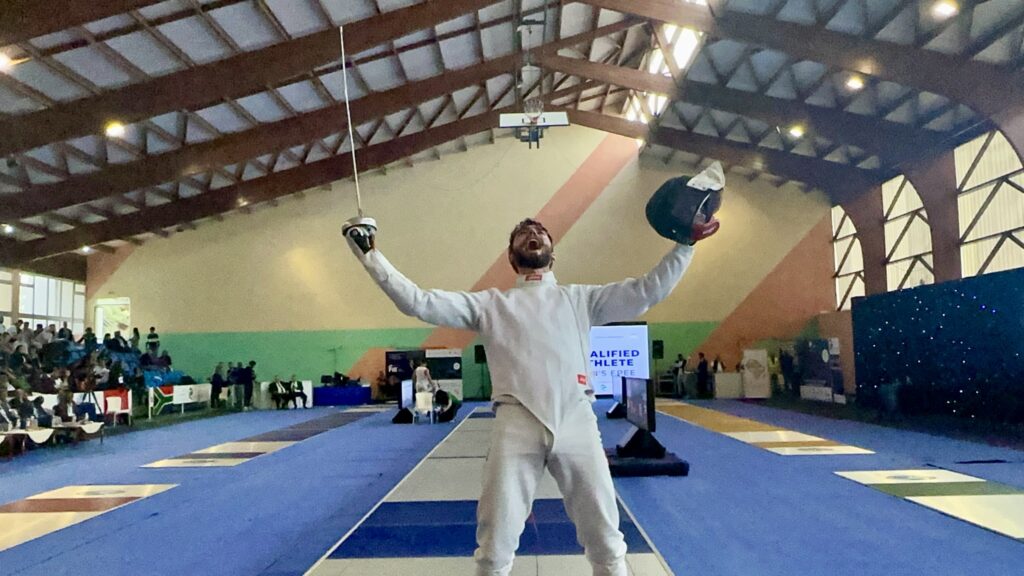
Giving Back and Inspiring the Next Generation
Saner’s journey in fencing is more than just a personal achievement – it’s becoming a beacon of inspiration for aspiring athletes. “If my path encourages even one kid to pick up a sword and believe in themselves, I’ll consider that a victory,” he reflects. “Fencing has shaped so much of who I am, and I hope to pass that on to the next generation.”
He envisions a future where fencing reaches further across South Africa, bringing opportunities to schools and communities that may not yet know the sport. “There’s so much untapped potential waiting to be discovered. I want to show young people that with enough perseverance and belief, they can surpass their own expectations,” he adds.
For Saner, fencing extends beyond the competition floor – it has become a lifelong pursuit of growth, resilience, and connection. It’s a sport that sharpens not just skills but character. As he sets his sights on LA 2028, his focus remains unwavering, driven by the chance to leave a lasting legacy for both himself and the sport he loves.
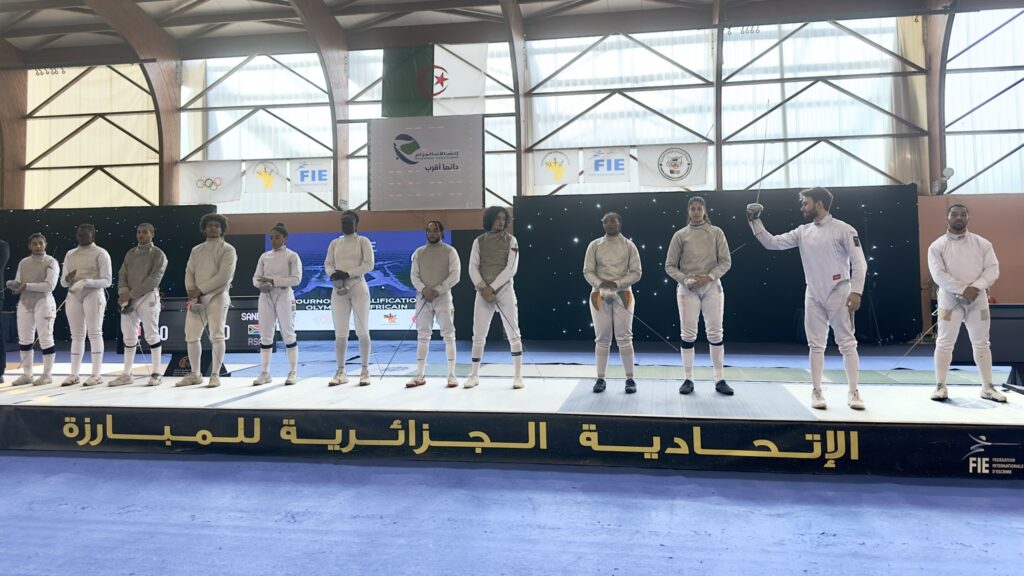
For more South African Sport News: Sport South Africa Home Page
For more South African Athlete Profile Articles: Know Our Athletes
